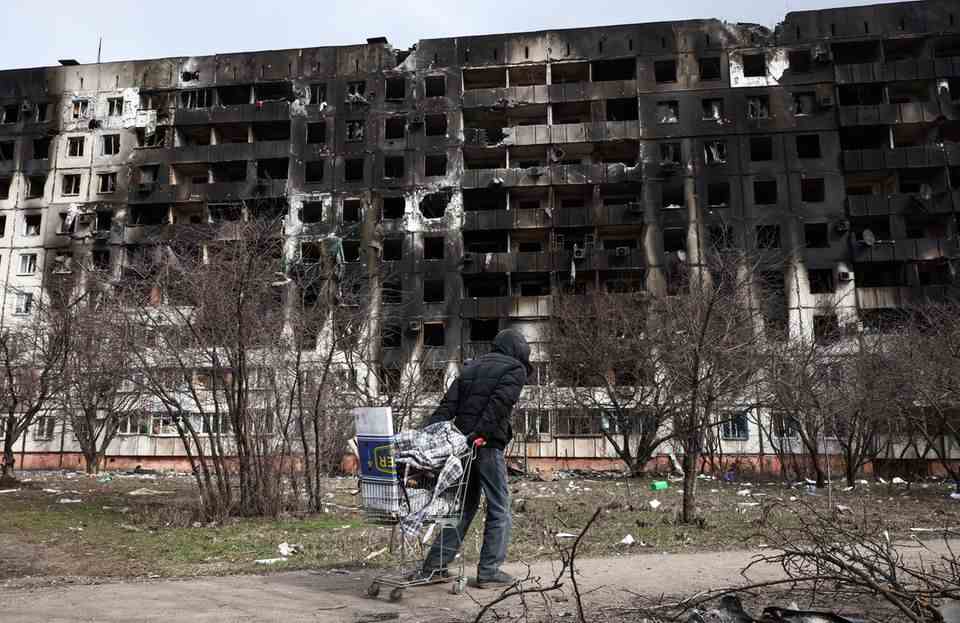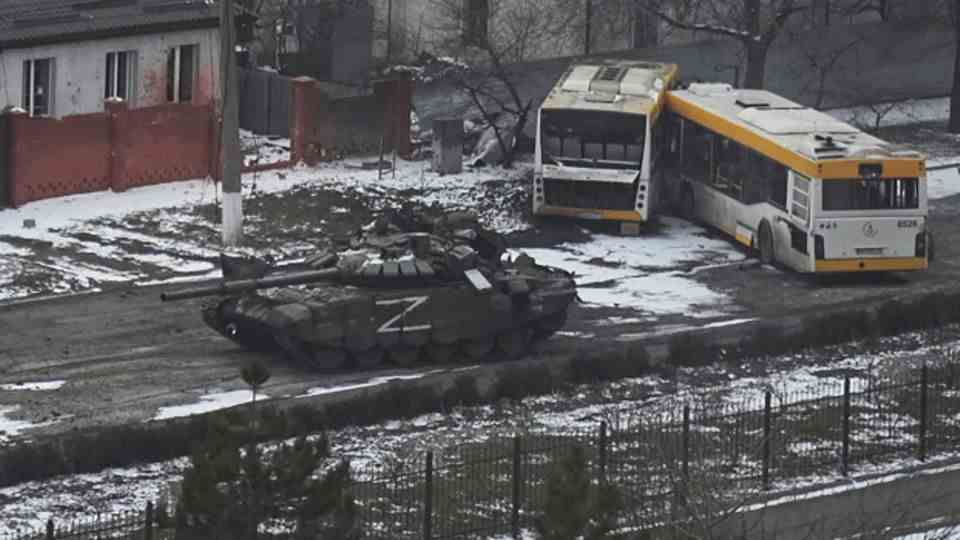opinion
Ukraine war
What you, Harald Welzer, call a “story”. A reply to your comment
This is what it looks like when a rocket destroys a shopping mall in Kyiv. War is raging and there is no “problem”, as the longtime geo-author Peter-Matthias Gaede wrote in a reply to the social psychologist Harald Welzer
© Anastasia Vlasova / Getty Images
Harald Welzer complained in the star Rhetoric and militancy in reporting and the classification of the situation as “good” and “bad”. Peter-Matthias Gaede, author and long-time editor-in-chief and publisher of the Geo-Magazine. He asks: did you even realize, Mr. Welzer, that there was a war in the Ukraine?
By Peter Matthias Gaede
Sure, you don’t have to be “brave” or even “hero” in comfort zones. Not “fight to the end” either. The Ukrainians are fighting bravely at the moment – and the social psychologist Harald Welzer, from star attributed to the camp of intellectuals, this is obviously very disturbing. That’s not how you should write about the war, he says. Also not from “resistance icons”.
And how could the media show pictures of crying women, mostly defenseless? (Aren’t they, because they don’t have an anti-aircraft weapon handy?) And about men who go to the front “mannerly”? (Aren’t they brave?).
For Harald Welzer, all of this is fundamentally wrong. “Brave people, the Ukrainians, yes yes,” he writes verbatim. Apparently annoyed, almost tired. Nowhere do you hear a “Wait a minute.” (You can’t hear it in the attackers’ tanks either).
wait a minute: what?
It may be that in Mr. Welzer’s private life context it is of crucial importance to feel comfortable with a padded choice of words. And if he only criticized the pathos that is probably missed in every war, it wouldn’t be worth mentioning.
What Welzer writes is much more cynical than mere criticism of too much pathos
But what he writes is much more cynical. It’s even pathetic. He writes a contemptuous “wow” to people who defend their country and to those who describe it as “self-sacrificing”. He certifies that the president of a country that was brutally attacked, over 92 percent of the population of which spoke out in favor of independence in 1991 and would even like to see this accepted by Mr. Putin, has learned from acting that he has good “performance”.
And if only someone there heard him, Mr. Welzer would probably shout out to the women and men in Ukraine that for heaven’s sake they can’t call the rescue teams who are still digging for people in the rubble of a theater in Mariupol heroes. And the courageous TV journalist Marina Ovzyannikova just not an icon of the resistance. It’s all just too theatrical for a German social psychologist.
Yes, apparently for Mr. Welzer it even amounts to a certain warmongering. As if this war might not even exist, we would only heed the “yes, but” he suggested.
Furthermore, Mr. Welzer laments the seductive power of the “David-versus-Goliath” narrative. Well, he will know the military equipment of Russia on the one hand and Ukraine on the other. But it doesn’t seem to bother him or even bother him when this imbalance is mentioned and leads to a certain partisanship for the loser. Which is also a partisanship for democracy versus dictatorship. For self-determination versus occupation. For honesty versus propaganda.
War is raging in Ukraine – and not a “problem”
Question, Mr. Welzer: did you actually realize that there was actually a war in the Ukraine? And not about words. A war and not, as you elaborately put it, a “problem”? And even if you are not a historian: you know the word “appeasement”. And what it once meant so tragically in the historical context. Namely, the illusion of Great Britain and France that they could appease the dictator Hitler by granting him parts of what was then Czechoslovakia. Did it stop Hitler?
So should we send a country into the dictatorship of Mr. Putin (without freedom of speech, without freedom of the press, with political murders, with the support of mass murderers like Assad and so on) because we are no longer allowed to distinguish between good and bad, as you are demanding ? You call this distinction a “story”. And they, you write, are simply “too good”. With which you insinuate that it is a story that could also be written in a completely different way. “Too good” probably means: too simple, too cheap.
But what is your story then? When one reads your spite towards all those who still dare to fight and suffer and maybe even become real heroes in the process (even if the word disgusts you so much), one can only come to one conclusion: Your story, from which fart- written out of a warm armchair would be surrender. At least convenience. In fact, the task of a country where people would very much like to choose not to be sent to prison.
So keep ranting about the militancy of words. But please don’t tell the women and men in Ukraine what they should do – and how they perceive their actions and how they call it.




